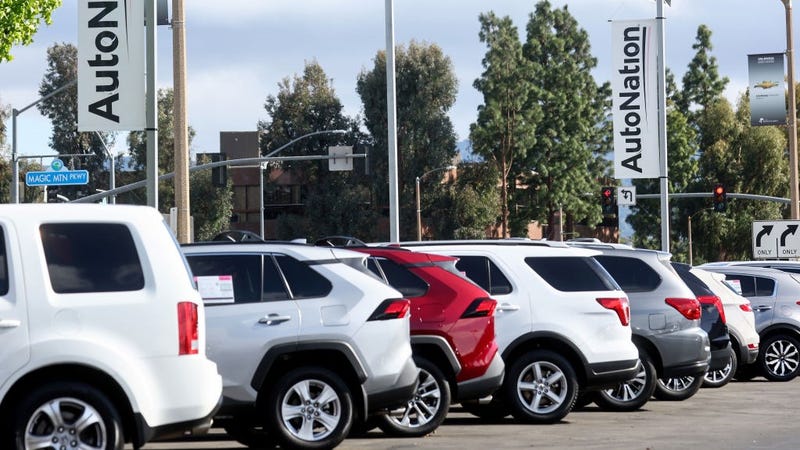
While prices of new and used vehicles keep rising in the United States, a record number of millennials and people in Gen Z are struggling to keep up with their car loans than before the COVID-19 pandemic.
TransUnion, the credit reporting agency, released new data comparing auto loan delinquency rates from before the pandemic to now, and showed that millennials and people in Gen Z have higher past-due rates than ever before.
Millennials, or those born between 1980 and 1994, defaulted on their car loans at a rate of 1.66% before the pandemic began, but that rate is now up to 2.14%, according to NBC News.
While younger Americans in Gen Z, born in 1995 and after, had a past-due rate of 1.75% before the pandemic, and that's jumped up to 2.21% over the past two years.
TransUnion noted that the total amount of auto loans dropped by 3% in the fourth quarter of 2021 to 6.5 million compared to the same period from 2020. The average balance of a new auto loan was $28,415 in the first quarter of 2021, up nearly $4,000 from 2021.
Fewer people are buying new vehicles, as there were 81.5 million car loans in all the United States in the first quarter of 2022, down from 83.3 million in that period in 2021.
"Supply shortages have driven up vehicle prices, and the shutdown of international factories will lead to a growing lack of inventory throughout the remainder of the year," TransUnion said. "On top of increasing vehicle prices, rising inflation will also have an impact on consumer purchasing power. To help keep monthly payments in check, we anticipate lenders may offer consumers options like lengthened loan terms to offset affordability challenges."
The average price of a new car was roughly $46,526 in April, according to Kelley Blue Book and its parent company Cox Automotive.
They determined that it will take a new record high of 40.6 weeks for the average earner to pay off an average new vehicle. Monthly payments increased to a record average of $698 per month as well in April.
"New-vehicle affordability continues to be much worse now than it was a year ago, when prices were notably lower and incentives were higher," Cox said in a news release. "The estimated number of weeks of median household income necessary to purchase the average new vehicle in April was up 18 percent from last year."
The index for the price of a new vehicle was up 1.1% in April, and up 13.7 over the last 12 months ending in April, according to the U.S. Bureau of Labor Statistic's most recent Consumer Price Index Summary released in May.
About 30% of millennials and people in Gen Z said they don't feel financially secure in a recent survey conducted by the consulting firm Deloitte. Roughly half the people in both age groups -- 46% of Gen Z and 47% of millennials -- said they "live paycheck to paycheck and worry that they won't be able to cover their expenses."
43% of Gen Zs and 33% of millennials have had to pick up a second job, either part-time or full-time, in order to afford everything in their lives. Overall, 26% of Gen Zs and 31% of millennials don't feel confident that when they retire they'll be financially comfortable.
Falling behind on car loans is now another challenge that young Americans are struggling with, as the survey addressed a number of the financial concerns millennials and Gen Zs are dealing with after the pandemic.
"This year’s survey finds Gen Zs and millennials deeply concerned about the state of the world, and actively trying to balance the challenges of their everyday lives with their desire to drive societal change," Deloitte said.
"They are struggling with financial concerns, while trying to invest in environmentally sustainable choices. They feel burned out, but many are taking on second jobs, while pushing for more purposeful—and more flexible—work."


